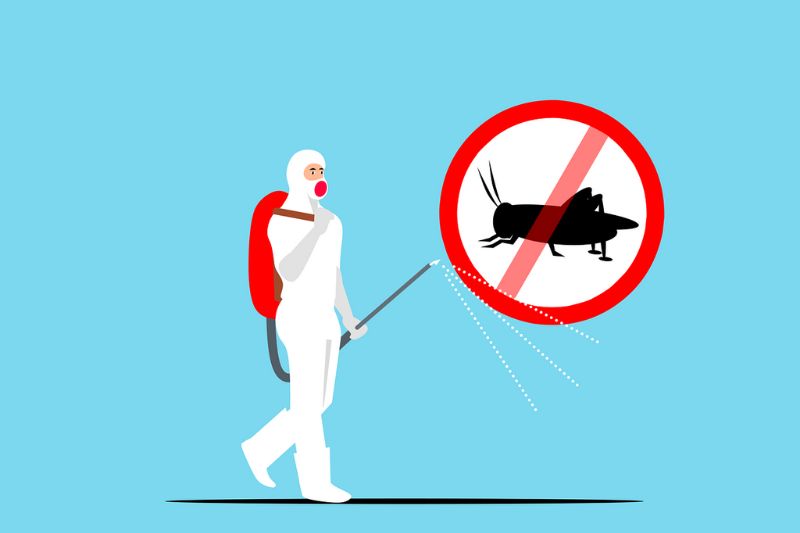No products in the cart.
Maintaining a Pest-Free Haven: Strategies for Homeowners

Having a pest-free sanctuary in your home goes beyond simply keeping it clean. It’s about taking a proactive approach to protecting your living space. This involves a combination of consistent upkeep, strategic techniques, and being vigilant for possible entryways. Below are some effective strategies for homeowners to maintain a pest-free haven.
Regular Cleaning
Removal of crumbs, spills, or any form of attraction to them that may be present is constant. It is essential to focus on vital points like kitchens, dining places, and any area that involves keeping or consuming food. Clean or vacuum floors whenever there are spills, wipe dry all surfaces, and you will eliminate food sources that attract ants, cockroaches, and rodents. Also, clearing up and tidying places could create fewer locations where pests could set in.
Consider Professional Pest Control
Most homeowners experience this dilemma in deciding whether to carry out a DIY pest control or hire an experienced service provider. Although DIY techniques can give some short-term comfort, these specific skills and resources from expert pest control companies make a big difference. Understanding the difference between DIY and professional pest control measures can guide homeowners in effectively making informed decisions to tackle persistent pest issues. The advantages of using expert pest control companies include customized methods for particular insects, safe and effective treatments, and tips on remaining bug-free. Pest control experts determine the degrees of infestations and their reasons and then initiate specific measures to eliminate the pests with minimal potential threats to residents and the environment.
Proper Food Storage
Food storage can be viewed as the first crucial line against pests, as it prevents them from reaching food sources in the first place. Airtight storage containers made from glass, plastic, or metal can be used to store food, thus deterring ants, rats, and cockroaches. These containers create a barrier that makes it difficult for pests to locate and reach any stored food, thus not attracting them to your home. Additionally, it helps preserve your general health, avoiding contaminated foods.
Seal Entry Points
Closing ways pests can enter your house helps keep pests away from your house. You must regularly check your home for gaps, cracks, and openings in the walls, windows, doors, and foundation. Identifying and sealing these spots keeps pests like insects or rodents from entering your home. Additionally, ensure that openings leading to your drainages are closed as well. This includes the kitchen sink and bathroom drainage. If not possible, putting a protection mesh is enough to keep any rodent or insect from entering the house.
Remove Standing Water
Standing water removal helps combat mosquitoes and other water-dependent insects. Such pests lay eggs in these waters and may act as perfect breeding grounds for these pests regardless of the stagnating water volume. Remove it immediately by checking inside and around your house for stagnating water. Continuous dryness keeps away the pests’ breeding cycle, thus lowering the number of pests in your home, reducing the chances of harboring infestation, and making you live in a safe and healthy environment.
Pruning Trees and Shrubs
Pruning off trees and shrubs on the sides of the house will ensure that the pest uses no branch to reach your home. The overhanging branches will offer an entry point for rodents or insects and a footbridge from the vegetation to the house’s outside. This helps eliminate any natural pathway that pests utilize in their attempts to find entrance points into your home and nesting grounds or places for concealment.
Regular Pest Inspections
Regular pest inspections are a basic preventive approach to maintaining your house from uninvited entry by destructive pests. Routine assessments often involve complete investigations on your property in search of evidence of pest presence and weak spots that might allow them into your premises. The early detection of the pests in these inspections ensures that homeowners take immediate action on what they can tackle. When such pests are caught at their infant stage, they are not allowed to grow into severe infestations that may harm properties and pose health hazards.
Dispose of Garbage Properly

Proper garbage handling also helps minimize the possibility of pest invasion and fosters a healthy living place. Open, uncovered dustbins always attract raccoons, while other rodents feed on food dumped in a non-sealed state. Sealed containers or well-covered garbage cans kept outside serve as deterrence, denying pests food sources and shelter. Homeowners avoid attracting pests by disposing of garbage promptly and closing sealed bins, thus keeping away odors and access. Additionally, cleaning the trash bins regularly can seem unattractive to pests and rodents.
Always keep in mind that the best defense against pests is prevention. By incorporating these effective strategies, homeowners can actively discourage pests from taking shelter, creating a less desirable environment and preventing infestations from maintaining a pest-free sanctuary. If the problem is beyond your control, leverage professional help.










Leave a Reply